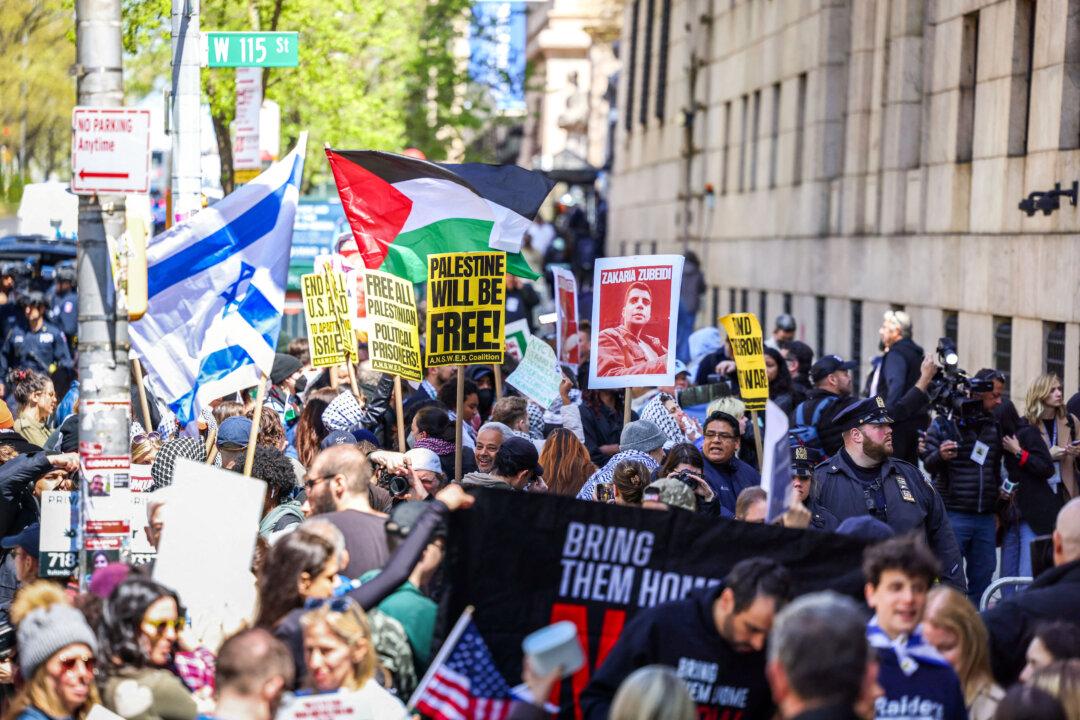A Massachusetts university is urging its students to end a pro-Palestinian encampment protest “peacefully and voluntarily” so the school can prepare for the start of the upcoming semester.
Tufts University students erected a “Gaza Solidarity Encampment” protest on April 7 in the academic quad and have occupied the area since. Protesters are demanding that the school end its association with any business that has ties to Israel and issue a statement condemning the war in Gaza.





